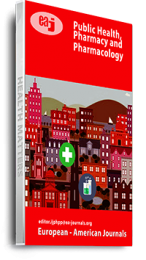The increasing challenge of multidrug-resistant (MDR) pathogens presents a significant threat in managing surgical site infections (SSIs), necessitating the exploration of alternative therapeutic agents. Alchornea cordifolia, a medicinal plant used in ethnomedicine, is renowned for its wound healing potentials based on its antimicrobial and anti-inflammatory properties. This study investigated the acute toxicity profile and in vivo protective efficacy of the ethanol extract of A. cordifolia leaves, against selected MDR bacterial isolates obtained from patients clinically diagnosed of SSIs, in five major hospitals within Calabar-Nigeria. Acute toxicity evaluation was conducted in mice following standard protocol, to determine the extract’s safety. The in vivo efficacy of the extract was also assessed on its ability to mitigate the establishment of infection in murine models infected with the MDR-SSI test isolates. Results revealed a favourable safety profile of the extract, with an LD50 of 1,732.0mg/kg. Further in vivo assessments demonstrated notable protective efficacy/antibacterial activity of the A. cordifolia extract, as it exerted 100% protection against mortality in mice due to induced infection with E. cloacae, K. pneumoniae, P. mirabilis, A. baumannii, S. aureus, and P. aeruginosa test isolates, while also exerting 50% protection against mortality in mice due to induced infection with E. coli and S. epidermidis test isolates. These findings suggests that the ethanol extract of A. cordifolia leaves holds promise as a safe and effective therapeutic option against surgical site infection caused by MDR bacterial pathogens, and underscores the need for integrating modern pharmacological approaches in the validation of ethnomedicinal plants.
Keywords: Acute Toxicity, Alchornea cordifolia, Antibacterial activity, pathogens, surgical site infections

